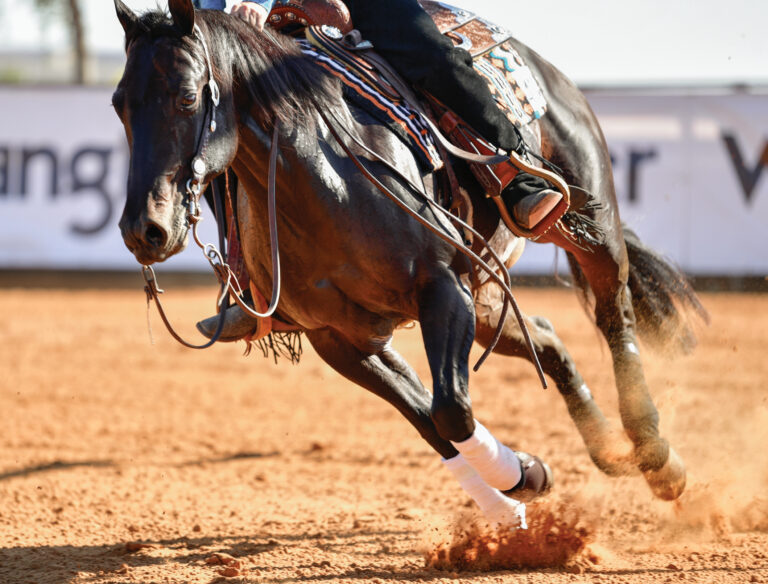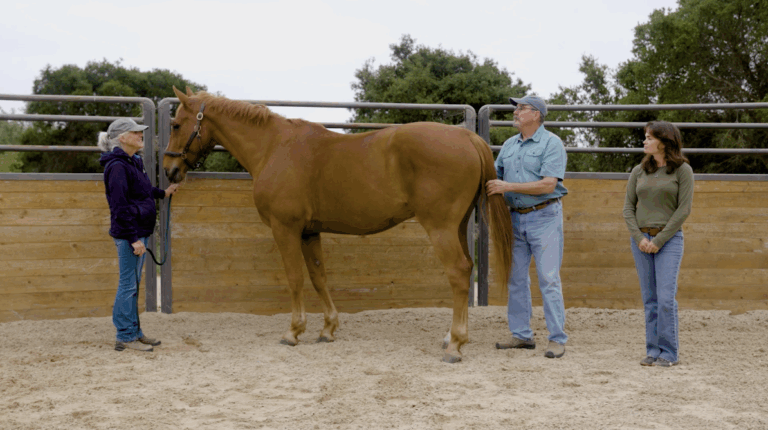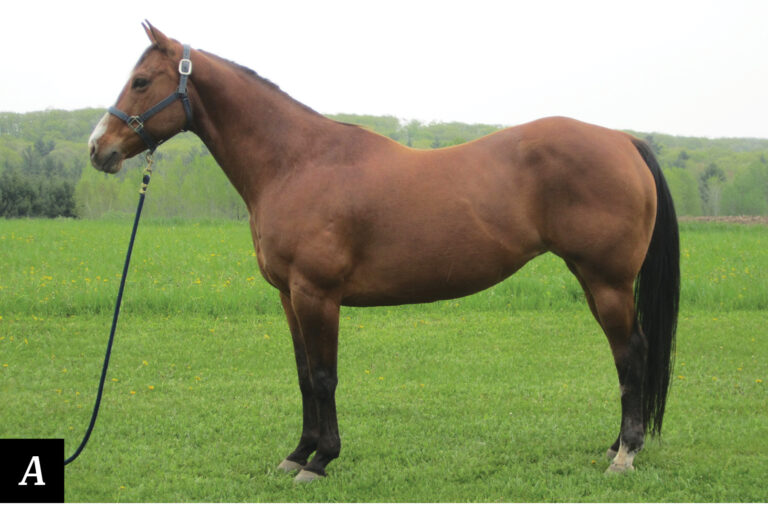Proper ventilation in your barn is crucial to your horse’s respiratory health, especially during the winter months. With the cold and snowy days ahead, you’re going to want to keep your horse bundled up in the barn as much as possible. Resist that urge.
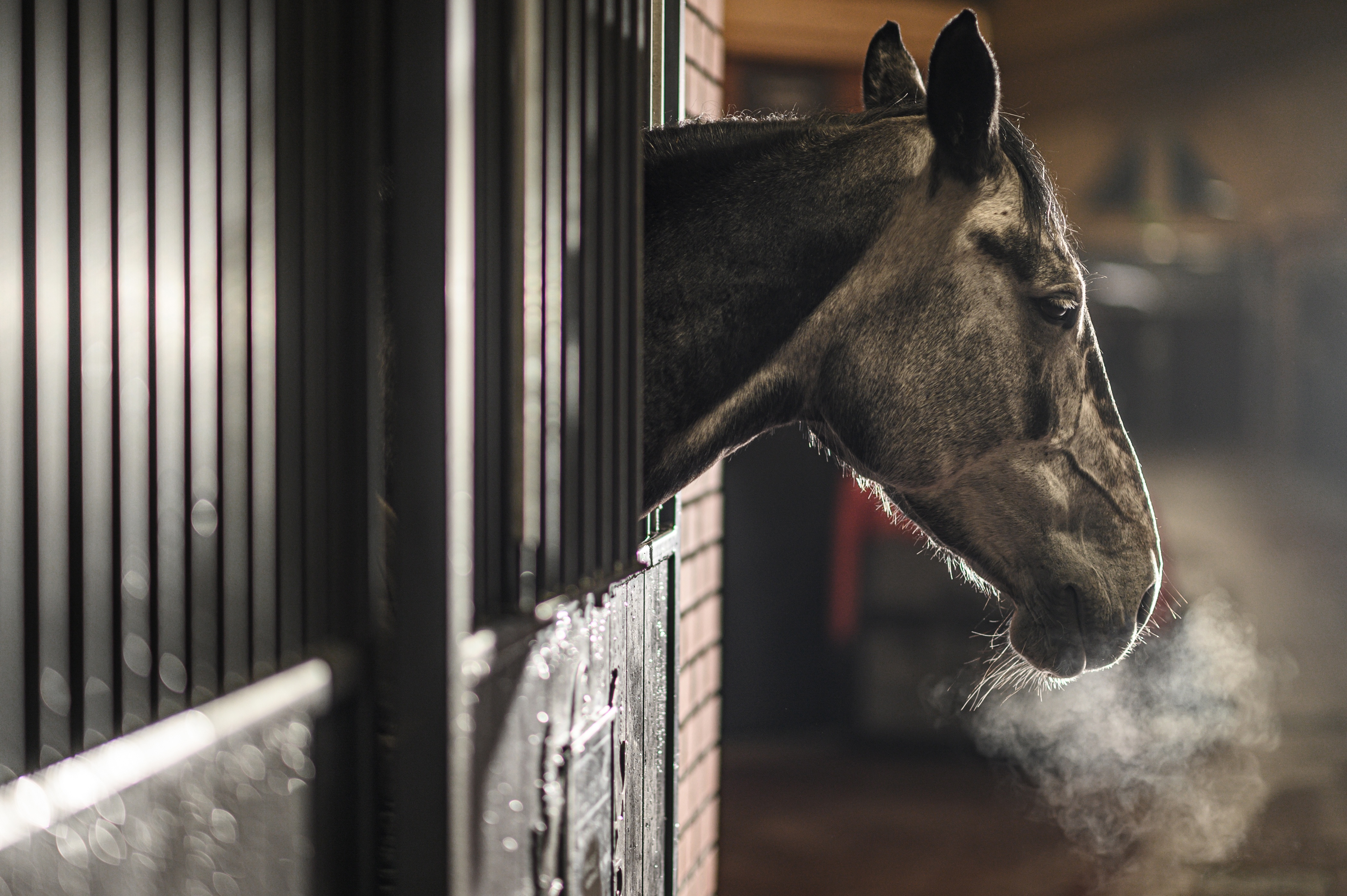
Why is it Bad?
When you close up every door and window in your barn to keep the cold air out, you’re also keeping any fresh air out. This can cause a significant decline in the air quality because dust and other particles from around the barn will build up in the air. Poor air quality is especially dangerous to a horse that suffers from heaves, a chronic, non-infectious airway condition, but can cause issues to a perfectly healthy horse if kept in a poorly ventilated space for too long.
[More on Heaves: Symptoms and Treatments]
To make sure your barn is still getting enough ventilation during the winter, try to remember that the most important thing you are protecting your horse from is wind and rain. The cold air itself isn’t what will make your horse uncomfortable since their bodies run hotter than ours do. Usually, a blanket provides enough warmth for a horse which doesn’t put his respiratory health at risk.
Check the Temps
So during the winter, keep track of the weather and adjust your barn accordingly. If it’s a nice sunny day but the temperature is still low, leave your doors and windows open to let fresh air in. You can leave them open at night, too, if the weather is going to stay nice. If you’re constantly letting your barn breathe when the weather is nice, it isn’t such a big deal when you have to close it up due to sideways rain or heavy winds.
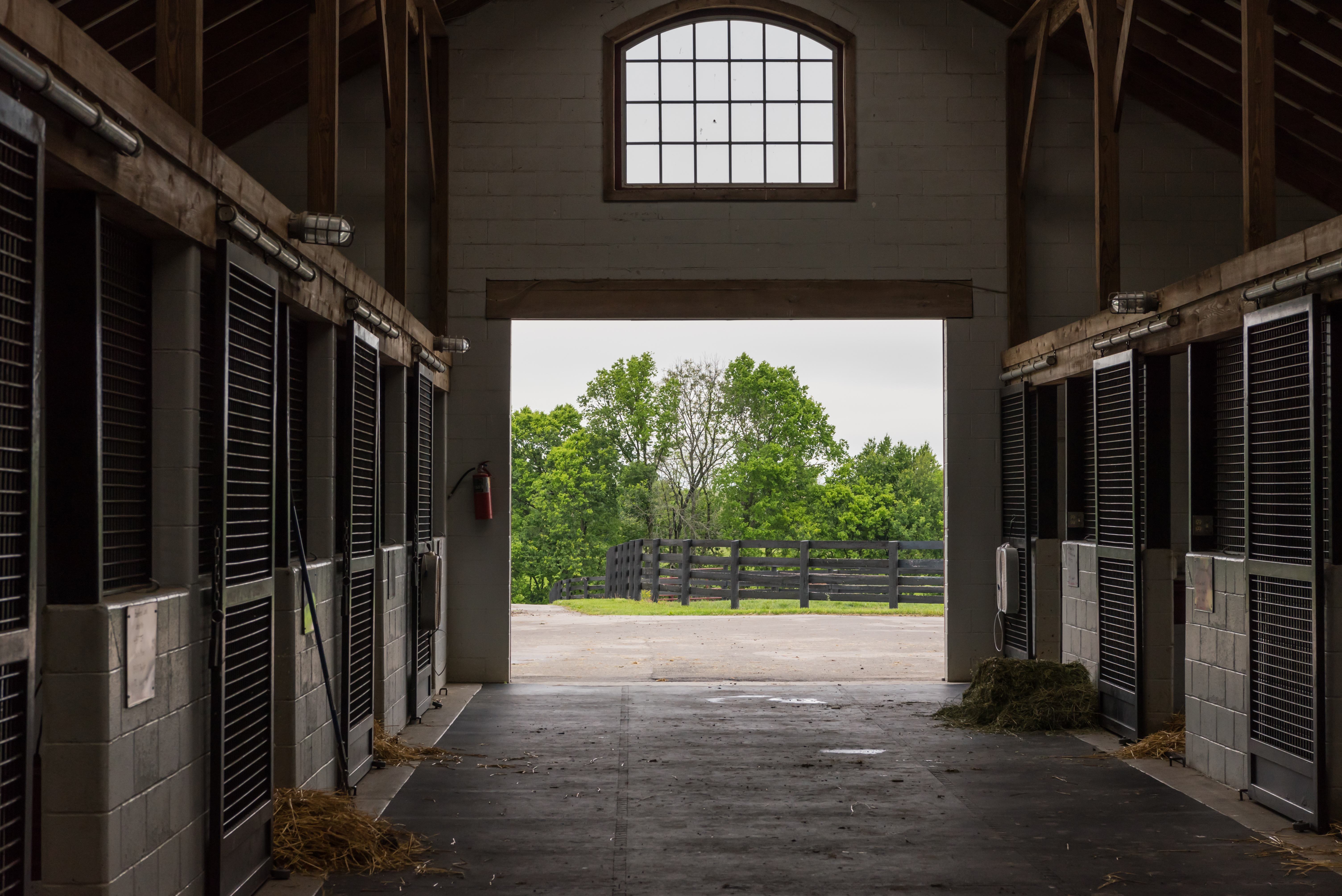
A good rule of thumb to tell if you’ve kept your barn closed up for too long is if it becomes 10 degrees warmer inside than it is outside. You also might notice the air feels thicker and smells like ammonia.
Clean it Up
It’s also important to up your cleaning routine during the winter to help keep things fresh when the barn is closed up. Clean your stalls extra thoroughly, and make sure you remove any trace of urine. You should also be stripping your stalls more than usual and you can use lime as an older-elimination method. Try to remove the manure as soon as you’re done cleaning stalls rather than letting the bucket or spreader sit in the barn for a few hours.
Do what you can to lower the dust levels in your barn and consider running fans when your horse is turned out to really get the air circulating. You can also go through your barn with a leaf blower to blow out any large amounts of dust after feeding or cleaning stalls. Turn your horse out whenever conditions allow so he can get fresh air, sunshine, and a little exercise.
[More on Winter Horse Care: Winter Care for Horses]
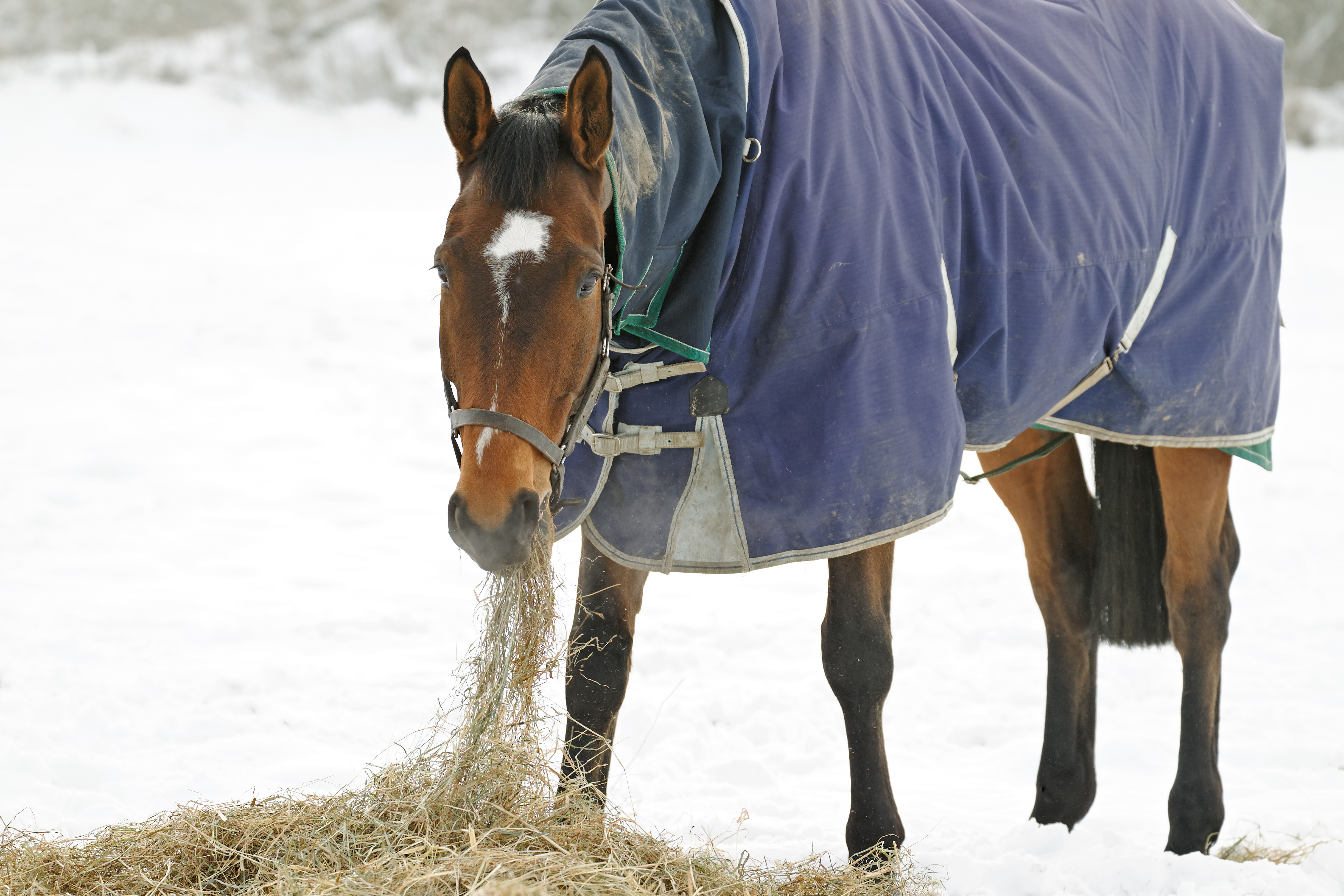
Staying on top of your barns ventilation during the winter might seem like a lot of extra work at the time, but in the end, it’s the best way to prevent any serious respiratory problems from developing in your horse that could have long term consequences.

